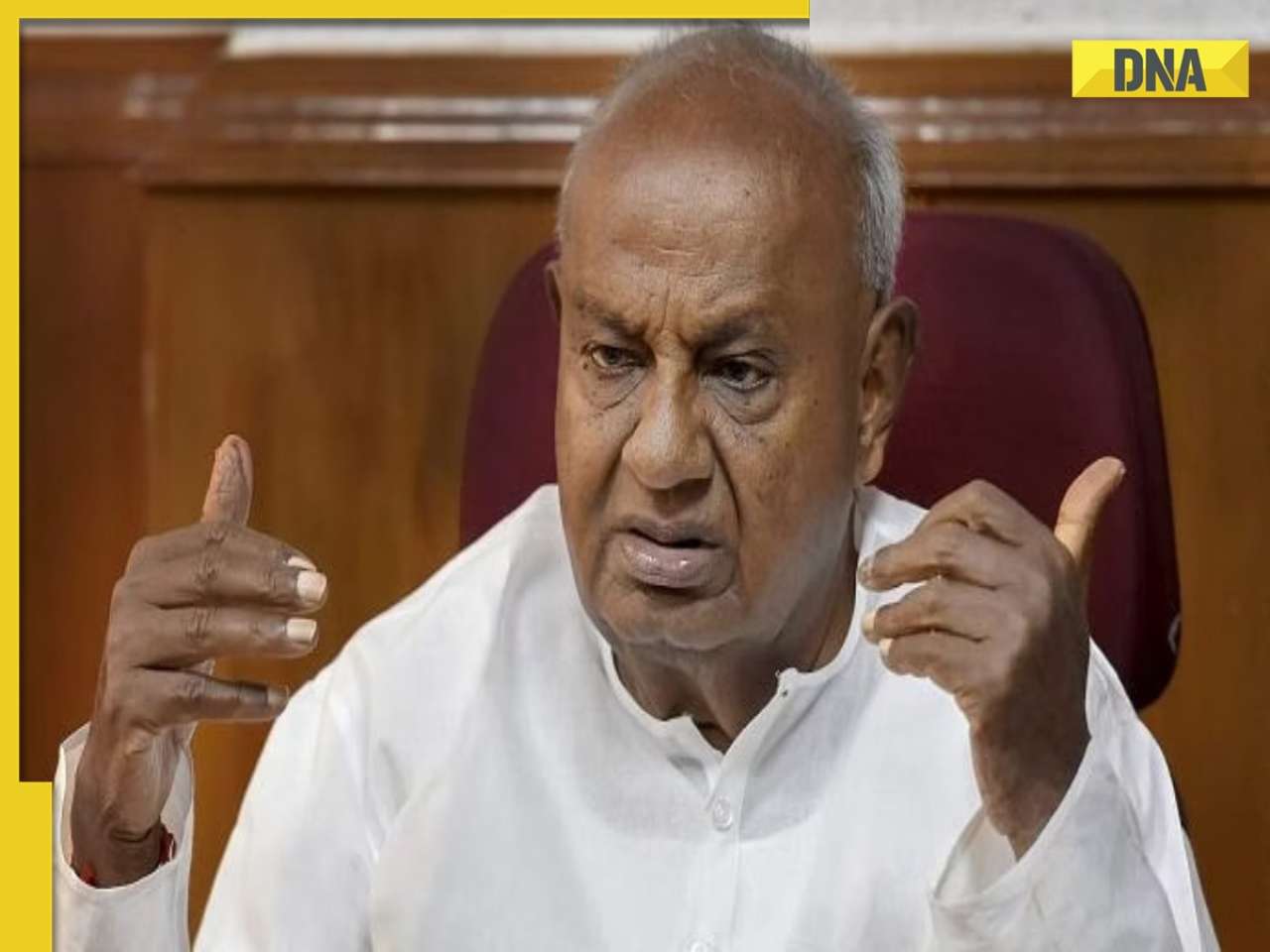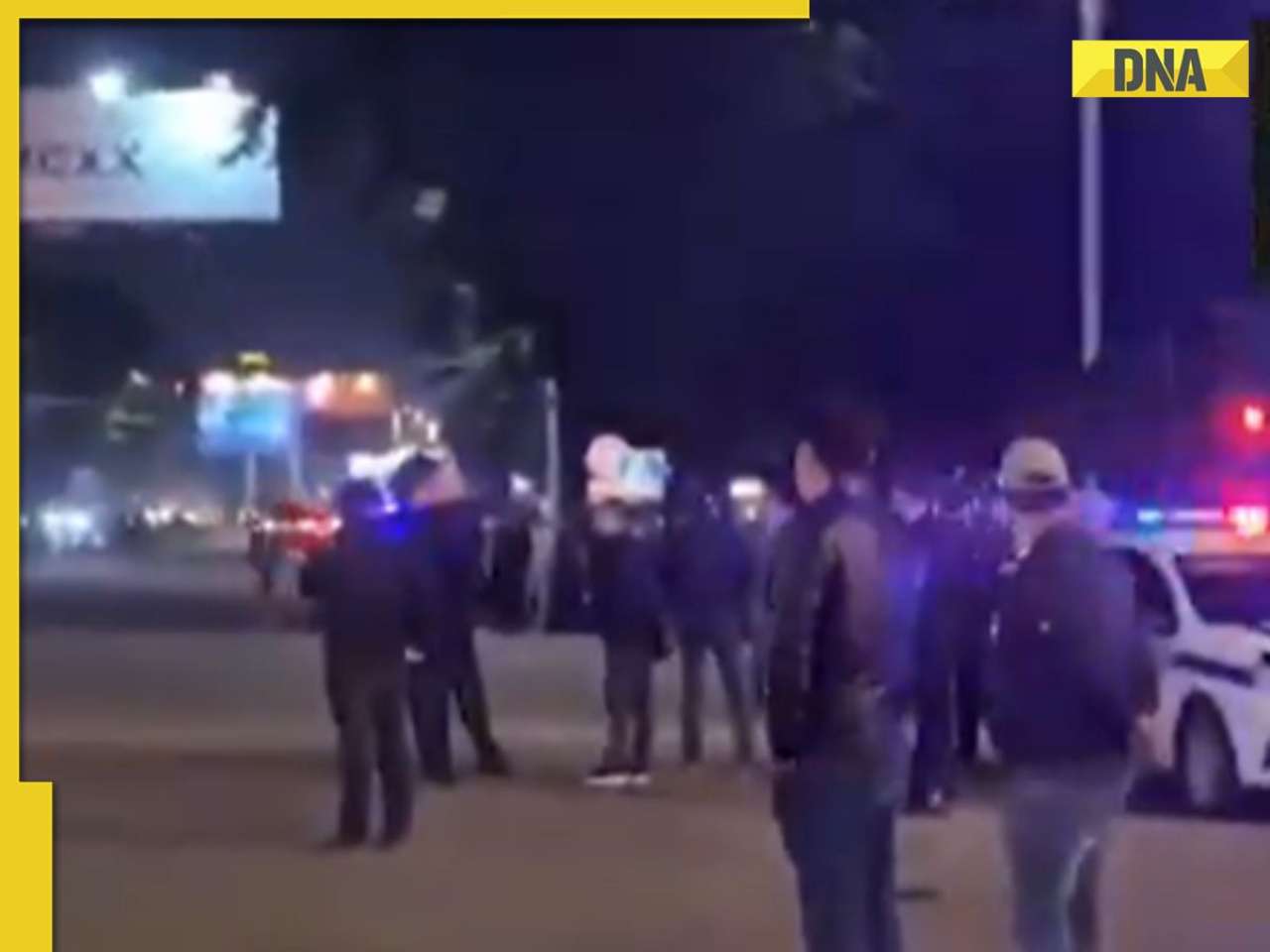Recent years have demonstrated how the pervasive control exercised by the military-dominated establishment has effectively transformed Pakistan into an increasingly authoritarian state, resulting in a severe curtailment of individual rights.
In the 1980s, under the Saddam Hussien’s rule, Iraq earned the moniker of “Republic of Fear'', because of his pervasive use of state secret agents, mukhabarat, to control the socio-political life of the country through a continuous cycle of fear, violence, and compliance. The contemporary Pakistan reflects a grimmer version of the 1980s Iraq with the military establishment having virtually assumed control over all facets of Pakistani society.
Recent years have demonstrated how the pervasive control exercised by the military-dominated establishment has effectively transformed Pakistan into an increasingly authoritarian state, resulting in a severe curtailment of individual rights. This period has witnessed a widespread crackdown on any form of dissent, with dozens of individuals being apprehended and subsequently disappearing at the hands of state agencies led by military intelligence. The events following the 9 May 2023 uprising serve as emblematic of this unsettling reality. During a large-scale crackdown, hundreds of opposition activists, journalists, and human rights advocates, alongside thousands of protesters, were detained. Many of these individuals now find themselves subjected to trials in military courts, while the fate of dozens of activists remains uncertain. Among the most prominent cases is the disappearance of journalist Imran Riaz, a staunch supporter of former Prime Minister Imran Khan. Imran Riaz was detained by Punjab Police and handed over to the Pakistani intelligence agencies from the Sialkot airport and has been never heard off ever since. What is more striking is how the Pakistani state agencies disdained court directives demanding the presentation of the journalist before the judiciary through their persistent denials of holding his custody despite the evidence to the contrary. This highlights the state of affairs of Pakistan’s accountability and transparency within its state apparatus, which raises serious questions about the protection of civil liberties and the rule of law in that country.
Notwithstanding other rights violations committed by the state agencies, particularly the military intelligence agencies, the use of enforced disappearances to silence the population has been a longstanding tradition of the Pakistani Army. Its history can be traced back to the 1970s but took on a more systematic and widespread character during the tenure of military dictator General Pervez Musharraf in early 2000s. This coincided with the Pakistani military's aggressive actions against both Pashtuns and Balochis under the guise of supporting America's war on terror. Since then, thousands of persons have reportedly gone missing after being apprehended by military intelligence agencies to be never seen again. Furthermore, hundreds of these missing individuals were allegedly handed over by the Inter-Services Intelligence (ISI) to American authorities on suspicions of ties to Al-Qaeda.
Numerous reports, including those from the official government commission, have shed light on the extent of enforced disappearances in Pakistan, which reveal staggering figures. It is estimated that over 8,000 individuals have been subjected to enforced disappearances, with a significant majority hailing from ethnic communities such as the Balochis, Pashtuns, and Sindhis. The Commission of Inquiry on Enforced Disappearances (COIOED), established in March 2011, which decides on the cases of enforced disappearance cases, have recorded 8,693 individuals as missing across Pakistan. The COIOED has claimed to have resolved around 6,458 cases, even as the over 2,000 continued to remain unaccounted for. However, these figures have been contested by various rights advocacy groups. According to the Voice for the Baloch Missing Persons (VBMP), which has been pursuing and monitoring cases of enforced disappearances in Balochistan, the number of individuals subjected to enforced abductions exceeds 8,000 in the Balochistan region alone. This is further compounded by the discovery of hundreds of mutilated bodies dumped across different parts of Balochistan region over the years, thereby pointing to custodial killings as well.
Similarly, as per Pashtun Tahafuz Movement (PTM), which advocates for the human rights of ethnic Pashtuns, particularly those who have suffered at the hands of Pakistani military agencies under the pretext of combatting the Tehreek-e-Taliban Pakistan and its affiliated groups, reports equally distressing situation in the tribal regions. According to PTM, there are more than 5,000 Pashtuns who remain unaccounted for following their enforced abductions by the military intelligence agencies. The military’s discontent for those voicing about these crimes can be gauged by how after a protest march in Islamabad in August 2023, PTM's co-founder and former lawmaker, Ali Wazir, along with other rights activist, Iman Waziri, were arrested for criticising Pakistan Army and highlighting ongoing rights violations in the country. The two remain under custody ever since. In yet another region, the Organizer World Sindhi Congress, an advocacy group dedicated to the rights of Sindhis, has made startling claims that "thousands of Sindhis, political workers, and human rights activists have disappeared" within the province over the years.
In 2011, a damning report by Human Rights Watch underscored the brazen nature of enforced disappearances in Pakistan. The report emphasised that the Pakistani security and intelligence grid operated with impunity as the majority of abductions were carried out “in broad daylight, often in busy public areas, and in the presence of multiple witnesses.” The disappearance of journalist Riaz Khan from an airport in Pakistan and subsequent denial of the state agencies of his custody demonstrates this modus operandi. Fast forward to 2020, a report by the International Commission of Jurists (ICJ) held that Pakistan’s government commission, COIOED, had miserably failed in its mandate “in holding perpetrators accountable.” More alarmingly, it accused the Pakistan government of using the commission as a facade to appear committed to “upholding” accountability, all while the grave issue of enforced disappearances continued unabated.
This unaccountability has been ensured by a weak political culture which has been continuously undermined and dominated by Pakistan military and hence making the civilian authority irrelevant in these matters while it commits these rights violations with impunity. It is notable to mention that during his campaign for 2018 elections, Imran Khan repeatedly pledged to address the issues of enforced disappearances and vowed to put an end to this practice by the state agencies. However, his promise of reform has not translated into any meaningful change. In fact, once in power, reports emerged that during his very first year in office, Pakistan witnessed a steep rise in the number of forced abductions. Though Khan’s government did bring in legislation to criminalise this practice, that has not dissuaded the perpetrators of this practice from carrying out these abductions.
Therefore, as long as the military establishment's stranglehold on Pakistan's political affairs persists, the pursuit of justice and the protection of civil liberties will remain elusive for those affected by enforced disappearances. The international community must continue to shine a light on these issues and press for change in Pakistan's approach to human rights and accountability.
Writer is the veteran of the Indian Navy
![submenu-img]() This singer helped BCCI when it had no money to award 1983 World Cup-winning Indian cricket team, raised 20 lakh by...
This singer helped BCCI when it had no money to award 1983 World Cup-winning Indian cricket team, raised 20 lakh by...![submenu-img]() Virat Kohli’s new haircut ahead of RCB vs CSK IPL 2024 showdown sets internet on fire, see here
Virat Kohli’s new haircut ahead of RCB vs CSK IPL 2024 showdown sets internet on fire, see here![submenu-img]() BCCI bans Mumbai Indians skipper Hardik Pandya, slaps INR 30 lakh fine for....
BCCI bans Mumbai Indians skipper Hardik Pandya, slaps INR 30 lakh fine for....![submenu-img]() 'Justice must prevail': Former PM HD Deve Gowda breaks silence in Prajwal Revanna case
'Justice must prevail': Former PM HD Deve Gowda breaks silence in Prajwal Revanna case![submenu-img]() India urges students in Kyrgyzstan to stay indoors amid violent protests in Bishkek
India urges students in Kyrgyzstan to stay indoors amid violent protests in Bishkek![submenu-img]() Meet IIT graduates, three friends who were featured in Forbes 30 Under 30 Asia list, built AI startup, now…
Meet IIT graduates, three friends who were featured in Forbes 30 Under 30 Asia list, built AI startup, now…![submenu-img]() Meet woman who cracked UPSC in fourth attempt to become IAS officer, secured AIR...
Meet woman who cracked UPSC in fourth attempt to become IAS officer, secured AIR...![submenu-img]() Meet IIT JEE 2024 all-India girls topper who scored 100 percentile; her rank is…
Meet IIT JEE 2024 all-India girls topper who scored 100 percentile; her rank is…![submenu-img]() Meet PhD wife of IIT graduate hired at Rs 100 crore salary package, was fired within a year, he is now…
Meet PhD wife of IIT graduate hired at Rs 100 crore salary package, was fired within a year, he is now…![submenu-img]() Meet woman not from IIT, IIM or NIT, cracked UPSC exam in first attempt with AIR...
Meet woman not from IIT, IIM or NIT, cracked UPSC exam in first attempt with AIR...![submenu-img]() DNA Verified: Is CAA an anti-Muslim law? Centre terms news report as 'misleading'
DNA Verified: Is CAA an anti-Muslim law? Centre terms news report as 'misleading'![submenu-img]() DNA Verified: Lok Sabha Elections 2024 to be held on April 19? Know truth behind viral message
DNA Verified: Lok Sabha Elections 2024 to be held on April 19? Know truth behind viral message![submenu-img]() DNA Verified: Modi govt giving students free laptops under 'One Student One Laptop' scheme? Know truth here
DNA Verified: Modi govt giving students free laptops under 'One Student One Laptop' scheme? Know truth here![submenu-img]() DNA Verified: Shah Rukh Khan denies reports of his role in release of India's naval officers from Qatar
DNA Verified: Shah Rukh Khan denies reports of his role in release of India's naval officers from Qatar![submenu-img]() DNA Verified: Is govt providing Rs 1.6 lakh benefit to girls under PM Ladli Laxmi Yojana? Know truth
DNA Verified: Is govt providing Rs 1.6 lakh benefit to girls under PM Ladli Laxmi Yojana? Know truth![submenu-img]() Kiara Advani stuns in Prabal Gurung thigh-high slit gown for her Cannes debut, poses by the French Riviera
Kiara Advani stuns in Prabal Gurung thigh-high slit gown for her Cannes debut, poses by the French Riviera![submenu-img]() Heeramandi star Taha Shah Badussha makes dashing debut at Cannes Film Festival, fans call him ‘international crush’
Heeramandi star Taha Shah Badussha makes dashing debut at Cannes Film Festival, fans call him ‘international crush’![submenu-img]() Streaming This Week: Madgaon Express, Zara Hatke Zara Bachke, Bridgerton season 3, latest OTT releases to binge-watch
Streaming This Week: Madgaon Express, Zara Hatke Zara Bachke, Bridgerton season 3, latest OTT releases to binge-watch![submenu-img]() Sunanda Sharma exudes royalty as she debuts at Cannes Film Festival in anarkali, calls it ‘Punjabi community's victory’
Sunanda Sharma exudes royalty as she debuts at Cannes Film Festival in anarkali, calls it ‘Punjabi community's victory’![submenu-img]() Aishwarya Rai walks Cannes red carpet in bizarre gown made of confetti, fans say 'is this the Met Gala'
Aishwarya Rai walks Cannes red carpet in bizarre gown made of confetti, fans say 'is this the Met Gala'![submenu-img]() Haryana Political Crisis: Will 3 independent MLAs support withdrawal impact the present Nayab Saini led-BJP government?
Haryana Political Crisis: Will 3 independent MLAs support withdrawal impact the present Nayab Saini led-BJP government?![submenu-img]() DNA Explainer: Why Harvey Weinstein's rape conviction was overturned, will beleaguered Hollywood mogul get out of jail?
DNA Explainer: Why Harvey Weinstein's rape conviction was overturned, will beleaguered Hollywood mogul get out of jail?![submenu-img]() What is inheritance tax?
What is inheritance tax?![submenu-img]() DNA Explainer: What is cloud seeding which is blamed for wreaking havoc in Dubai?
DNA Explainer: What is cloud seeding which is blamed for wreaking havoc in Dubai?![submenu-img]() DNA Explainer: What is Israel's Arrow-3 defence system used to intercept Iran's missile attack?
DNA Explainer: What is Israel's Arrow-3 defence system used to intercept Iran's missile attack?![submenu-img]() This singer helped BCCI when it had no money to award 1983 World Cup-winning Indian cricket team, raised 20 lakh by...
This singer helped BCCI when it had no money to award 1983 World Cup-winning Indian cricket team, raised 20 lakh by...![submenu-img]() This film had 3 superstars, was unofficial remake of Hollywood classic, was box office flop, later became hit on...
This film had 3 superstars, was unofficial remake of Hollywood classic, was box office flop, later became hit on...![submenu-img]() Meet Nancy Tyagi, Indian influencer who wore self-stitched gown weighing over 20 kg to Cannes red carpet
Meet Nancy Tyagi, Indian influencer who wore self-stitched gown weighing over 20 kg to Cannes red carpet![submenu-img]() Telugu actor Chandrakanth found dead days after rumoured girlfriend Pavithra Jayaram's death in car accident
Telugu actor Chandrakanth found dead days after rumoured girlfriend Pavithra Jayaram's death in car accident![submenu-img]() Meet superstar who faced casting couch at young age, worked in B-grade films, was once highest-paid actress, now..
Meet superstar who faced casting couch at young age, worked in B-grade films, was once highest-paid actress, now..![submenu-img]() Viral video: Flood-rescued dog comforts stranded pooch with heartfelt hug, internet hearts it
Viral video: Flood-rescued dog comforts stranded pooch with heartfelt hug, internet hearts it![submenu-img]() Dubai ruler captured walking hand-in-hand with grandson in viral video, internet can't help but go aww
Dubai ruler captured walking hand-in-hand with grandson in viral video, internet can't help but go aww![submenu-img]() IPL 2024: Virat Kohli drops massive hint on MS Dhoni’s retirement plan ahead of RCB vs CSK clash
IPL 2024: Virat Kohli drops massive hint on MS Dhoni’s retirement plan ahead of RCB vs CSK clash![submenu-img]() Do you know which God Parsis worship? Find out here
Do you know which God Parsis worship? Find out here![submenu-img]() This white marble structure in Agra, competing with Taj Mahal, took 104 years to complete
This white marble structure in Agra, competing with Taj Mahal, took 104 years to complete








































)

















)
)
)
)
)
)